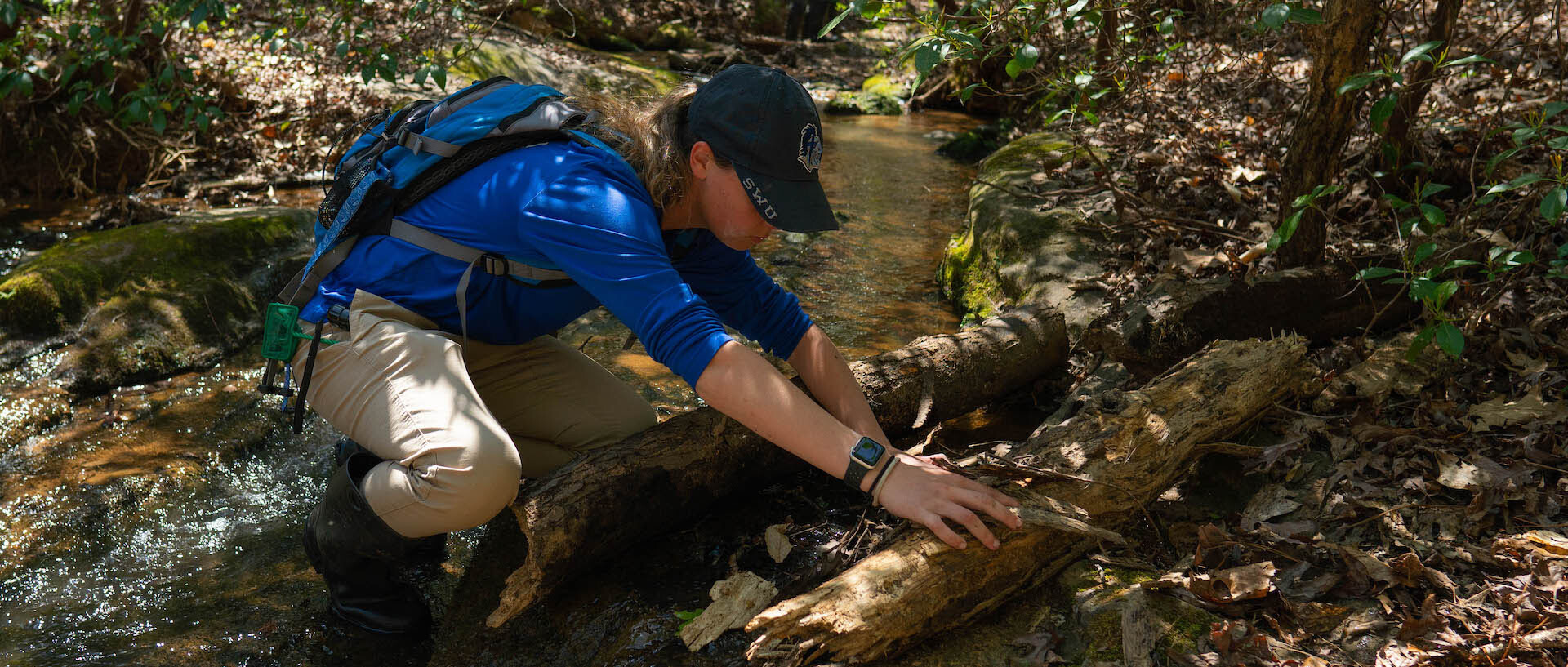
Environmental Science (BS)
Explore science—outside.
If you come alive in the great outdoors, consider the Environmental Science program at SWU. Our approach to environmental science is grounded in a Christian worldview—one that integrates the biblical principles of stewardship, ethics, and wilderness spirituality with scientific theory and practice, conservation principles, and a deep knowledge of the natural world.
You’ll study ecology, wildlife and natural resource management, sustainability, and natural history, all while focusing on current trends in research and public interest. You’ll spend ample time outdoors (and in the classroom), honing your field methods and organismal identification skills and learning strategies to communicate the practical and spiritual importance of caring for the Earth. Summer study away opportunities are also possible. Past trips have included destinations like California, Utah, New Mexico, Arizona, and Costa Rica.
The world is out there. Are you ready?
The Environmental Science (BS) program is approved to receive the Enhanced Scholarship for LIFE Scholarship and Palmetto Fellows.

“I love the diversity of subjects that can be studied and that they are interconnected. I've always enjoyed the outdoors, so learning more about something I love has been awesome! Plants are cool.”Noah Dilday — 2022 Environmental Studies Graduate
- City/regional/environmental planner
- Ecologist
- Environmental consultant
- Environmental impact analyst
- Fish and game warden/officer
- Forest ranger/official
- Land and water conservation/management
- Natural resource specialist
- Park ranger/naturalist
- Public interest lobbyist
- Science teacher
- Zookeeper
Graduates of the Environmental Science program will be able to:
- Describe how distributions and abundances of species are not random and how the underlying causes can be investigated and uncovered.
- Explain why maintenance of the Earth’s biodiversity is of utmost importance and identify factors which influence biodiversity.
- Identify common species of local flora and fauna by sight and sound.
- Discuss the fundamental principles, practical benefits, appropriate methods, and unique challenges inherent to the concept of sustainability in the 21st century.
- Demonstrate an understanding of the range of environmental issues existing today through knowledge of environmental law and policy at local, national, and international levels.
- Provide a substantive argument for the care of the natural world from a Christian perspective.
